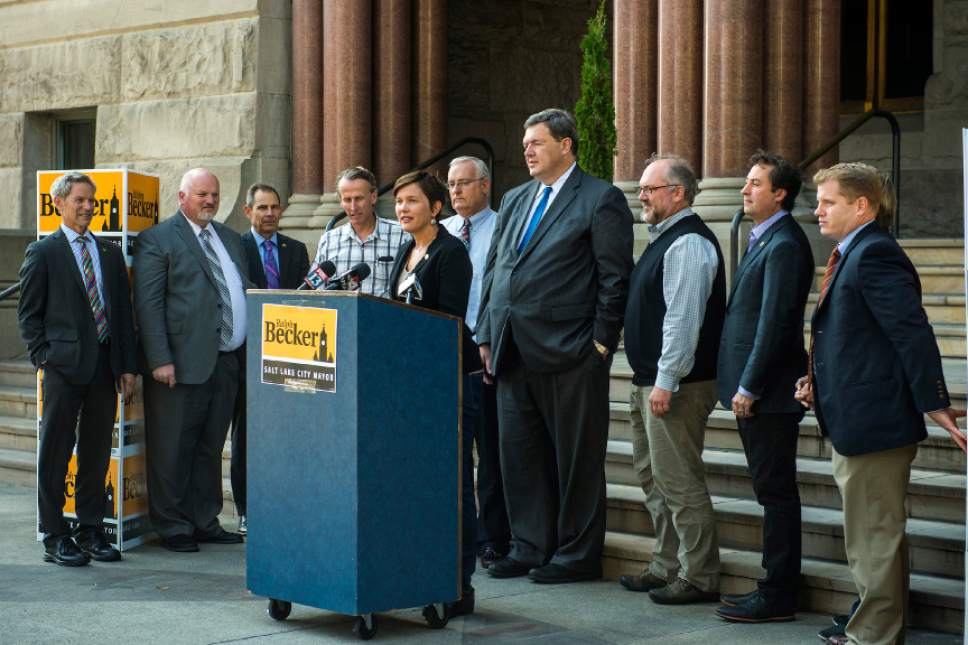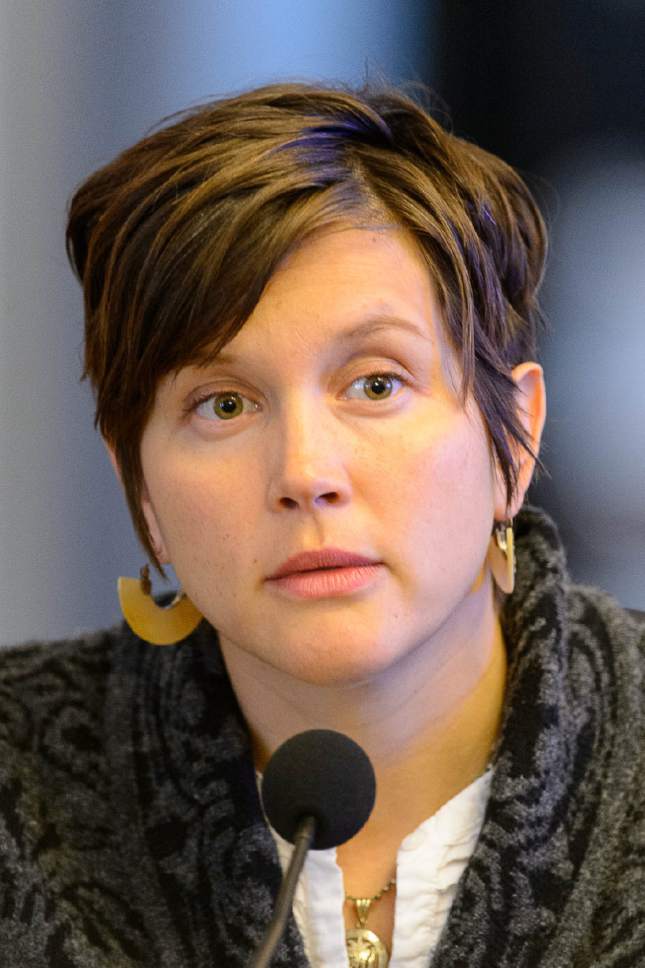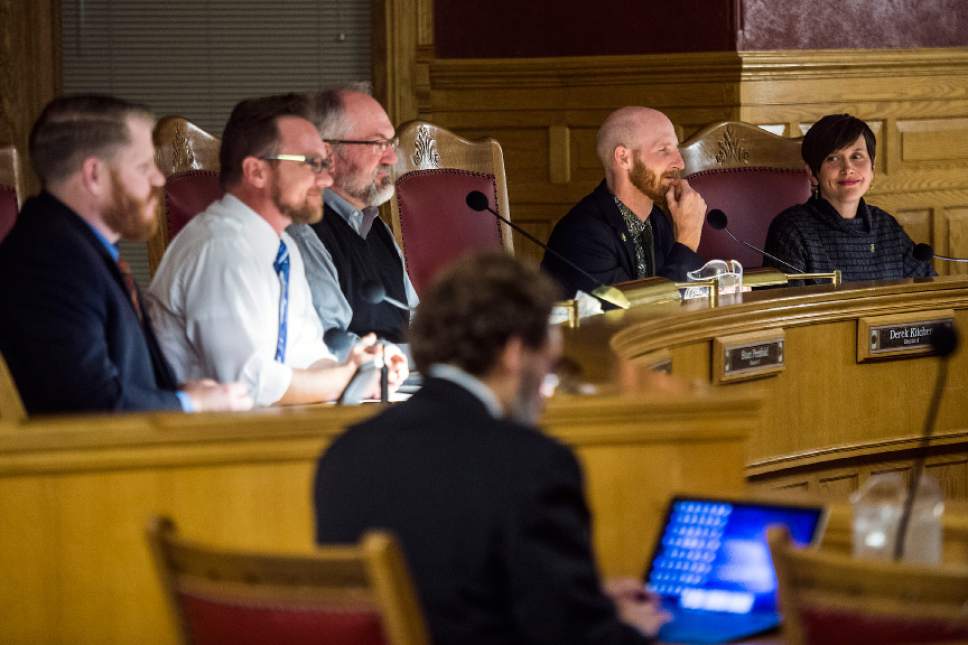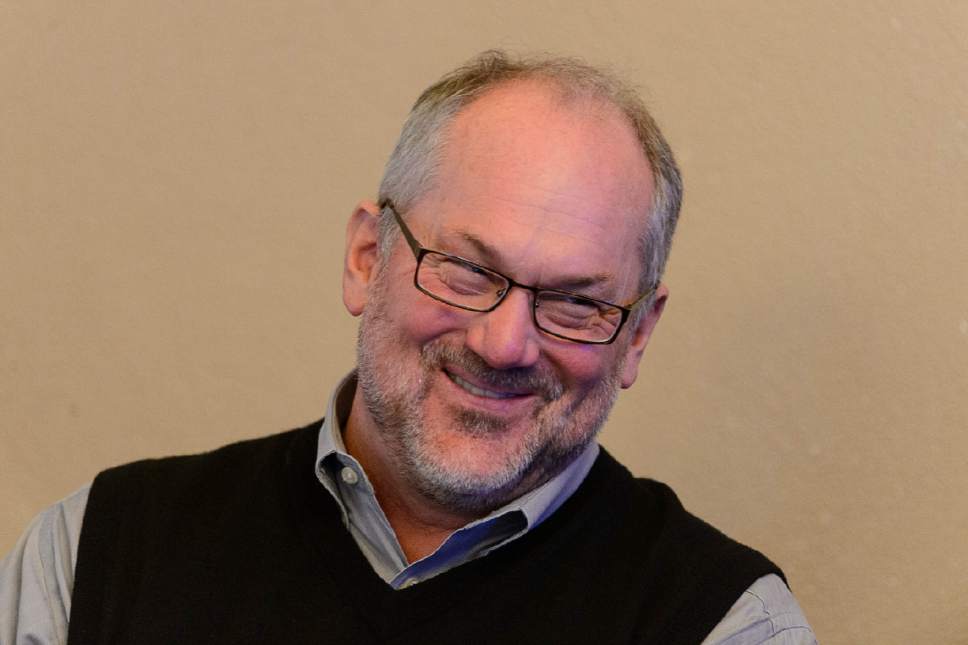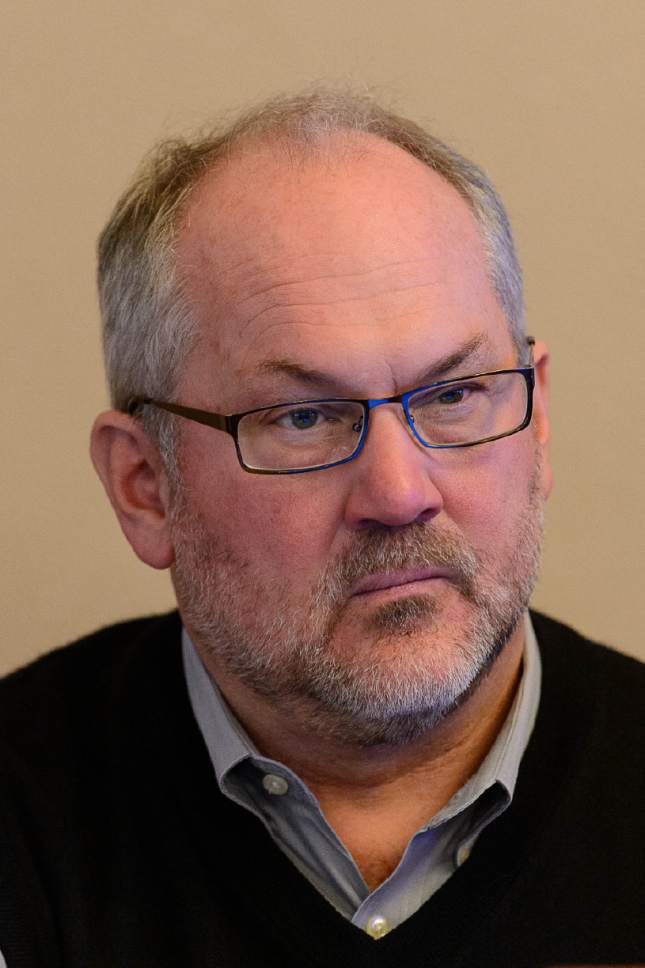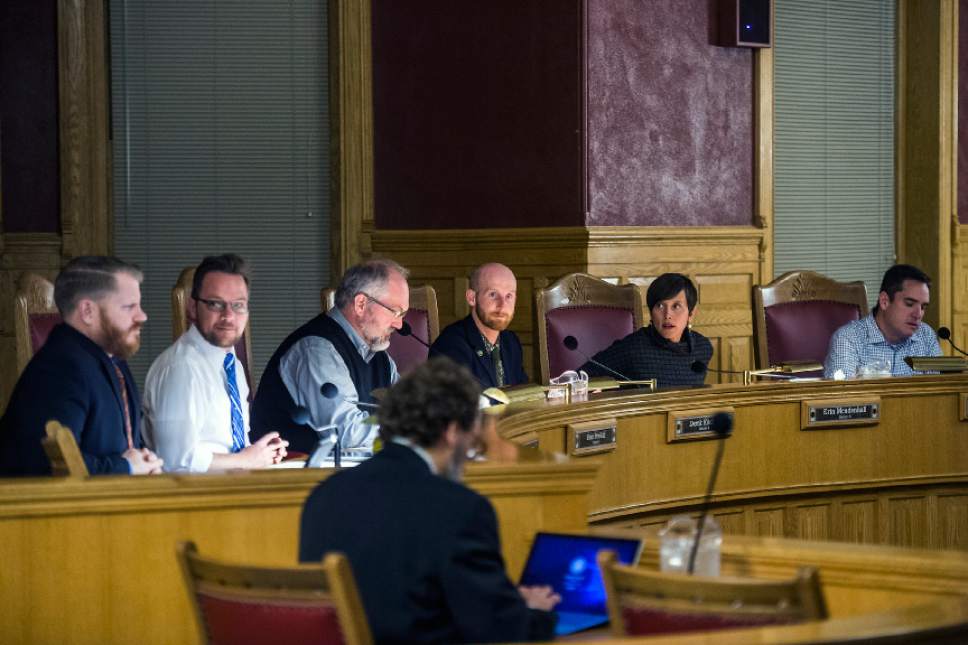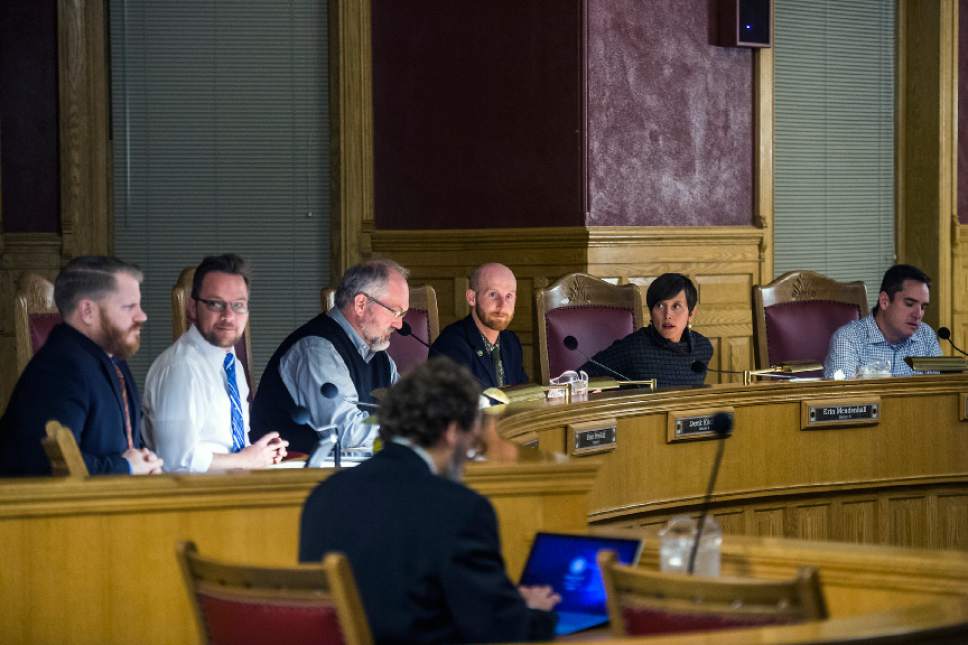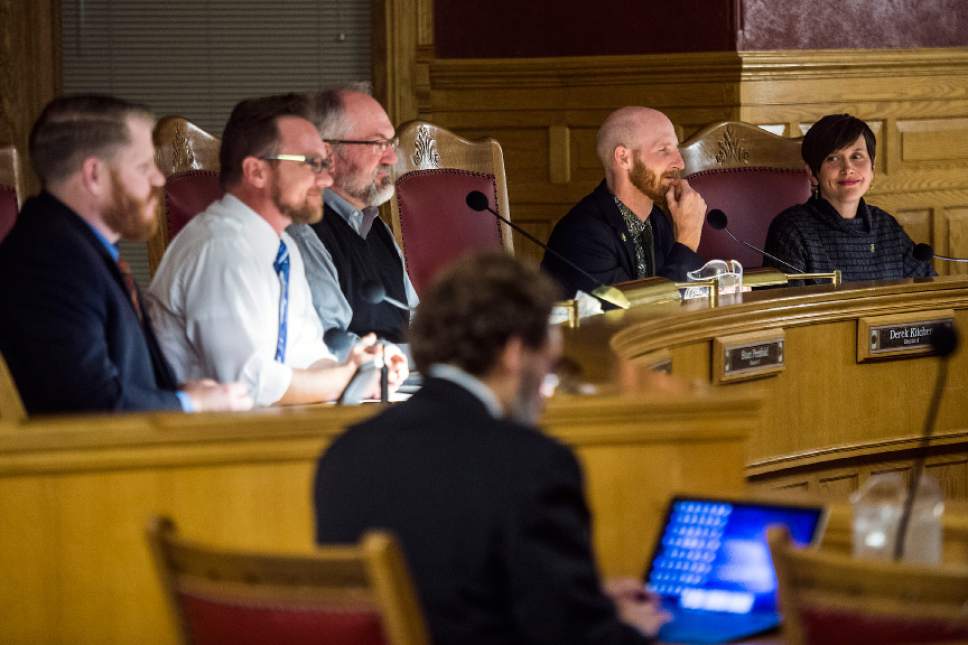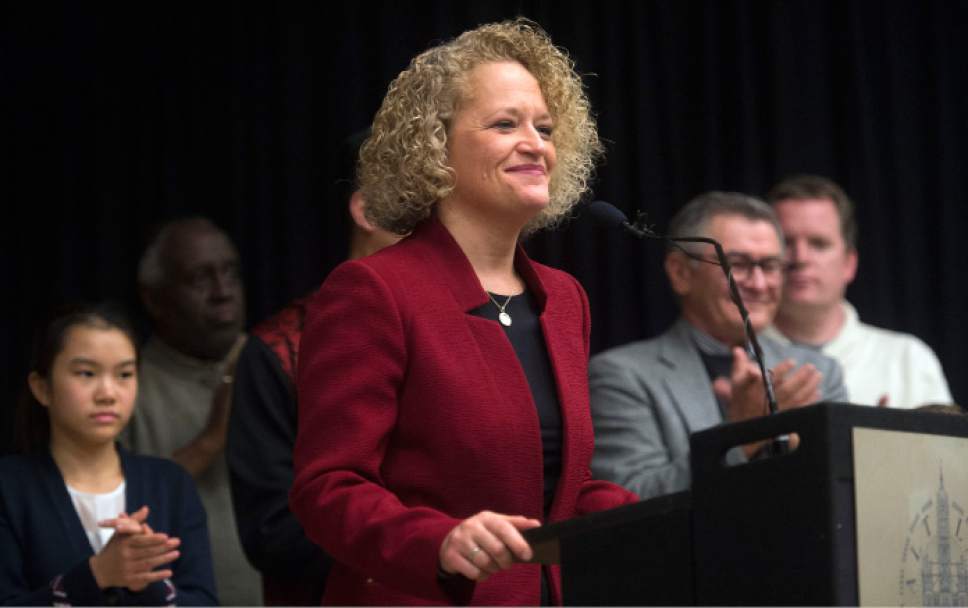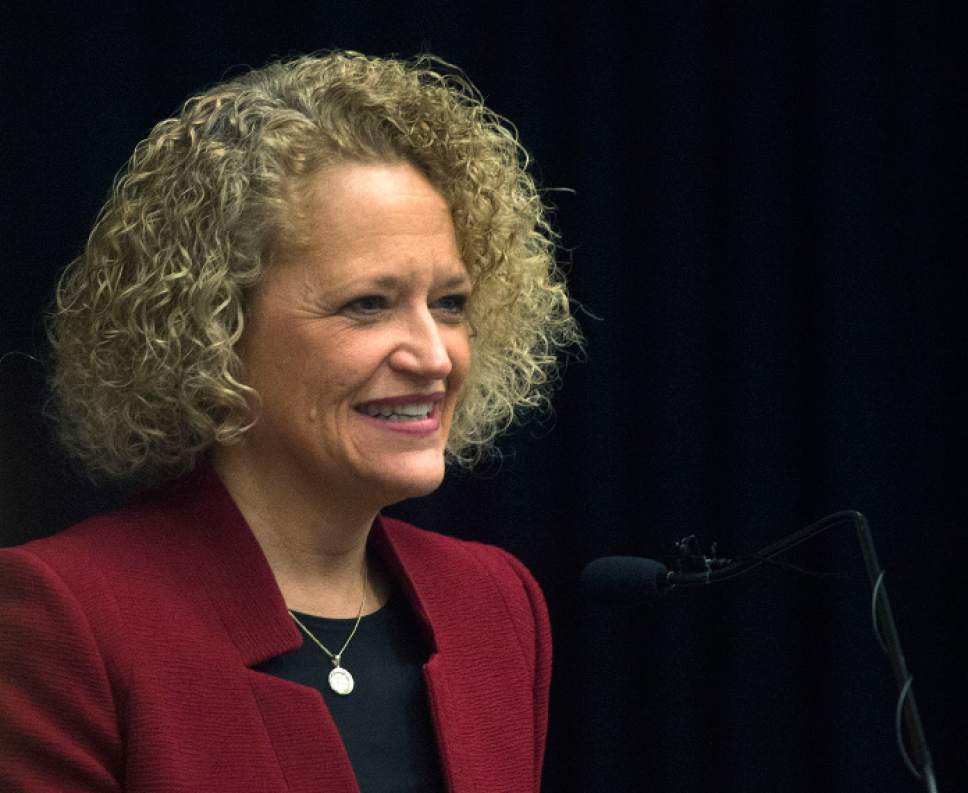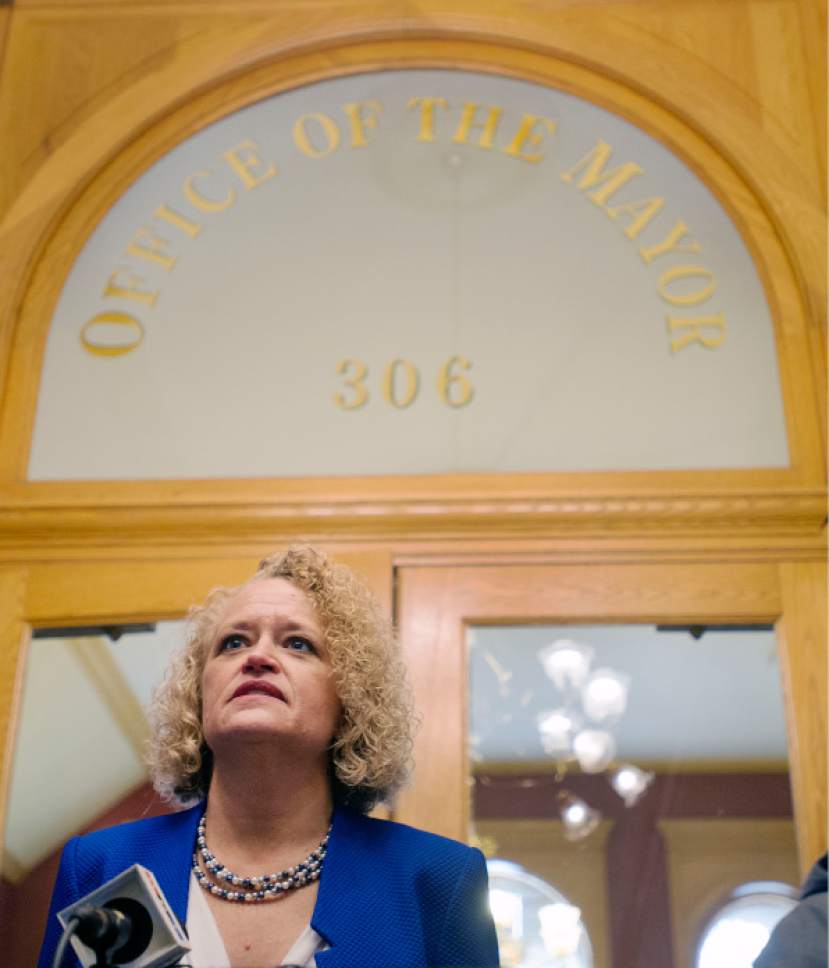This is an archived article that was published on sltrib.com in 2016, and information in the article may be outdated. It is provided only for personal research purposes and may not be reprinted.
The air conditioning has long been off at Salt Lake City Hall, but the climate in the corridor between the offices of the City Council and the administration feels downright icy more than 10 months after Jackie Biskupski was sworn in as mayor.
Some now perceive a thaw as the legislative and executive branches work through the difficulties of identifying four sites in the capital city for proposed 150-bed homeless shelters. But others aren't convinced a new cooperative spirit is in the offing.
The frustration has not been one-sided. The mayor has voiced several complaints and the council has a list of grievances that grows week by week as the Biskupski administration struggles to find its footing.
Late last month, angst and rancor were in full display over discussions surrounding construction-impact fees.
At the City Council's formal session Oct. 25, Biskupski slipped out of the chambers before the agenda item marked "council questions to the mayor," leaving Chief of Staff Patrick Leary and David Litvack, her deputy chief of staff, to respond to queries.
A perplexed Council Chairman James Rogers asked Litvack three times why the mayor had not submitted a proposal for impact fees to bridge the gap between the Nov. 2 expiration of a one-year moratorium and a waiting period of about four more months when a new ordinance could take effect.
The city had lost more than $7 million in impact fees during the previous 12 months and expects to lose at least $500,000 a month until a new ordinance can kick in.
One of the ongoing gripes is that the administration is slow to forward initiatives, leaving the council little time to digest them before facing harsh realities, such as deadlines.
Rogers had previously criticized the mayor for not submitting an impact-fee proposal to the council in a timely fashion, so it could adopt a new ordinance. Once passed, such regulations cannot be imposed for 90 days under Utah law. Biskupski's team, by contrast, has steadfastly maintained it moved the complex fee proposal as fast as it could.
In the council meeting, Litvack's response to Rogers, praising the mayor's long-term plan, was nonresponsive to the question of what to do about impact fees in the interim.
The council chairman threw up his hands and said, "Can someone else ask him? I'm not getting through."
One after another, council members Erin Mendenhall, Lisa Adams and Charlie Luke asked the same question — why didn't the mayor propose an interim impact-fee plan — to no avail.
Council members were visibly flummoxed by the stonewalling. In the end, the council grudgingly determined that, without a proposal from the administration, it would keep the moratorium in place.
The episode appeared to be a new low in a relationship that has been contentious since inauguration day.
—
Tug of war • There have been quite a number of sore spots. In September, a simmering Biskupski lashed out at Rogers before a Department of Airports board meeting because the council refused to go along with a plan for two homeless shelters of 250 to 300 beds each.
The proposal from the mayor's commission on site selection, in conjunction with Salt Lake County's Collective Impact initiative, was 18 months in the making.
But council members felt shut out of the decision. When it came time for them to fund the purchase of shelter sites, council members drew a line in the sand: Facilities of 250 beds would be too large for any single neighborhood to absorb.
In a tense behind-closed-doors meeting, brokered by Utah House Speaker Greg Hughes, R-Draper, the council won out — with the caveat that it would take responsibility, along with the mayor, for the locations of four homeless shelters of 150-bed capacity. Their decision, which could come as early as Monday, is bound to be controversial.
In January, Biskupski did allow one council member to join the site-selection commission set up by her predecessor, Ralph Becker, who left the city's legislative body out of the organization. But Biskupski would not go along with the council's first choice — District 4 Councilman Derek Kitchen — but did OK the second choice, District 2 Councilman Andrew Johnston. The slight left a sour taste with council members.
More recently, the mayor ripped the council as "irresponsible" after it hastily earmarked $18 million of the city's Redevelopment Agency (RDA) budget for affordable housing.
Biskupski had campaigned on affordable housing, but said realigning the RDA budget without more analysis could jeopardize economic-development projects already in the works.
The council, by contrast, said affordable housing could not wait. The move appeared to usurp the mayor's role leading the initiative — something the council appears more comfortable doing in light of what it perceives as a less-than-dynamic administration.
—
A new day? • Nonetheless, Councilwoman Mendenhall, who has been critical of Biskupski in the past, said the tenuous relationship with the mayor was on the upswing. The council's collaboration with Biskupski's team on where to site new homeless shelters had brought them together, she said.
"We're working on a new relationship with the mayor," Mendenhall said. "For the first time this year, we're seeing fantastic collaboration."
Councilman Stan Penfold said he just didn't see it, calling the relationship "strained" and "challenging."
"It's not very collaborative," he said, noting he didn't detect calmer waters ahead. "The best indicator of future performance is past performance."
Penfold pointed to the mayor's refusal to make an interim proposal on impact fees as a case in point.
"The refusal of the administration to make a recommendation — that's problematic," he said. "That's part of the mayor's job."
Biskupski declined to speak to The Salt Lake Tribune for this story. Spokesman Matthew Rojas said she was in Washington, D.C., and was too busy for a telephone interview.
In the 2015 campaign, Biskupski described herself as a hands-on leader with experience as a top manager in the office of Salt Lake County Sheriff Jim Winder. That, she said, was in contrast to the style of Becker, the two-term mayor she replaced, whom she characterized as unavailable, delegating most duties to staffers.
But her tenure as the city's chief executive got off to a rocky beginning. Her first action as mayor was to ask for the resignations of all top-level employees. That's a management stratagem sometimes used in partisan government.
Salt Lake City, by contrast, is officially nonpartisan, with candidates running minus party labels. The mayor can select up to 111 at-will positions in city government. Historically, however, many of those appointees remained on staff when new mayors took office because their expertise in key positions was deemed invaluable.
Biskupski's action resulted in respected managers, who possessed decades of institutional knowledge, leaving the city. Among them were Public Services Director Rick Graham, Public Utilities Director Jeff Niermeyer and RDA Executive Director D.J. Baxter. Their departures left the council fuming and may have set the stage for a continued troubled relationship between the two branches of government.
—
Teamwork • Council members all say they want the mayor to do well. When the mayor succeeds, the city succeeds, is their common refrain.
Councilman Luke said the council would like to see the city push through important topics such as economic development, homelessness and affordable housing — priorities also favored by the mayor.
It is imperative that the mayor and council work together, he said. If they are at loggerheads, opportunities are missed and residents suffer.
Luke recalled the standoff between former Mayor Rocky Anderson and the City Council that included Eric Jergensen, who also sat as the chairman of the RDA. After the 2002 Winter Games, the Salt Lake Organizing Committee offered the city $9 million to create an Olympic Park that would celebrate the legacy of the global gathering and provide a permanent location for the Olympic torch, Hoberman Arch and other symbols of the historic event.
But the mayor and council, acting as the RDA board, could not reach an agreement on location. The money went away and the Hoberman Arch is now in pieces in a warehouse.
"That example is always in the back of my mind," Luke said. "Even if the process isn't congenial, we have to muscle through."
Personal issues are distracting and get in the way of city business, Councilman Johnston said. "I really hope we're not there. That's where we don't want to get. We want to stick to the issues."
Johnston agrees with his colleagues that the first 10 months have been rough going at City Hall.
"There has been acrimony both ways," he said. "I'd hate to put it all on the mayor."
Like Mendenhall, Johnston hopes the shelter site-selection process may help the council and mayor turn a new page.
"We can expect the mayor to reach out, or we can reach out," he said. "It's not happening — so someone has to start it."


